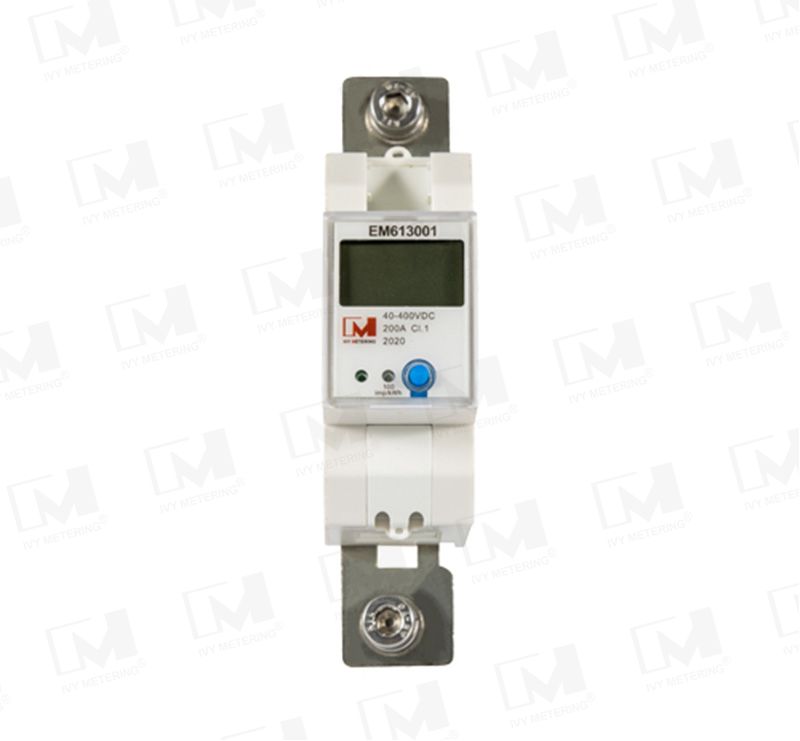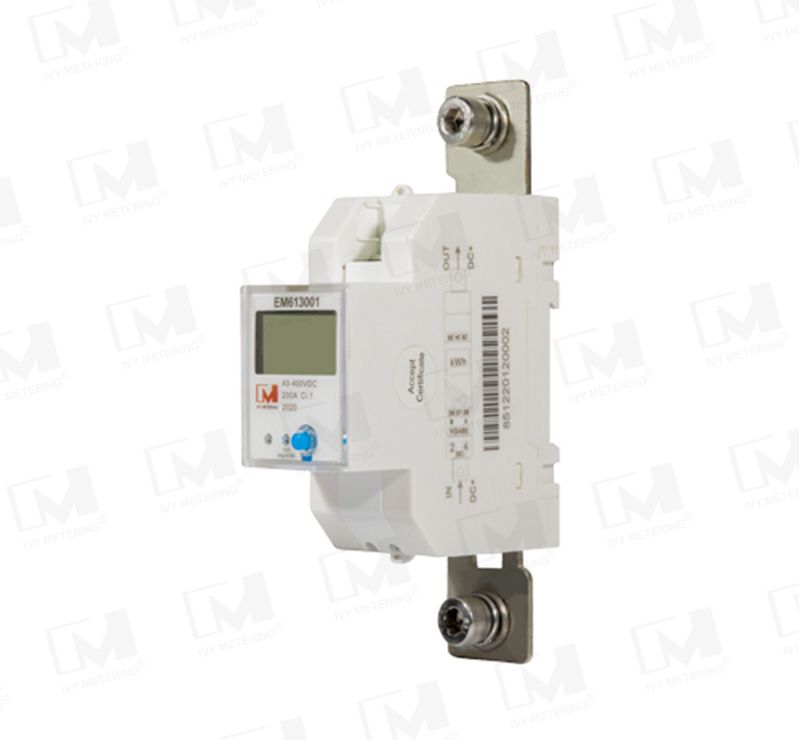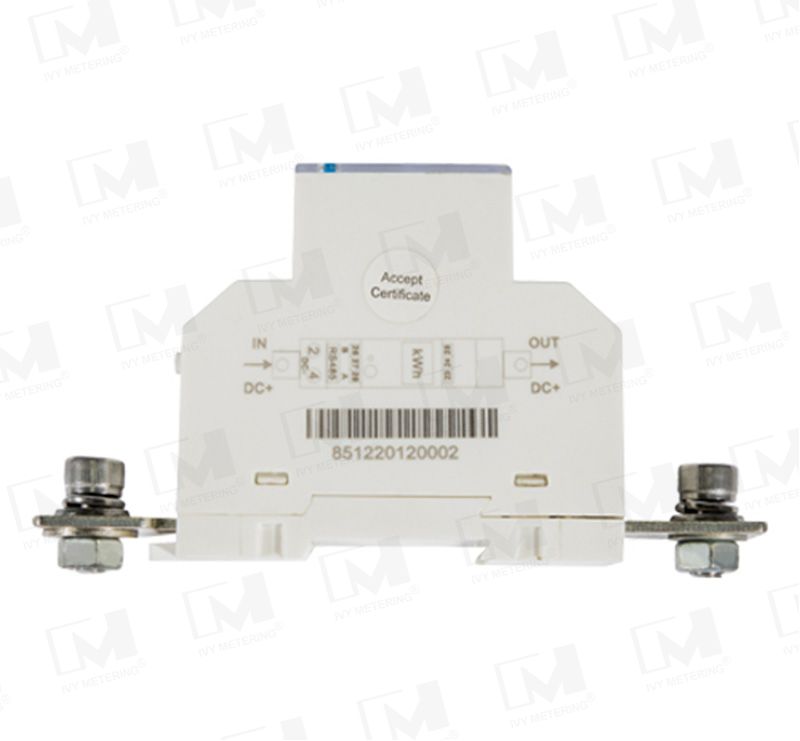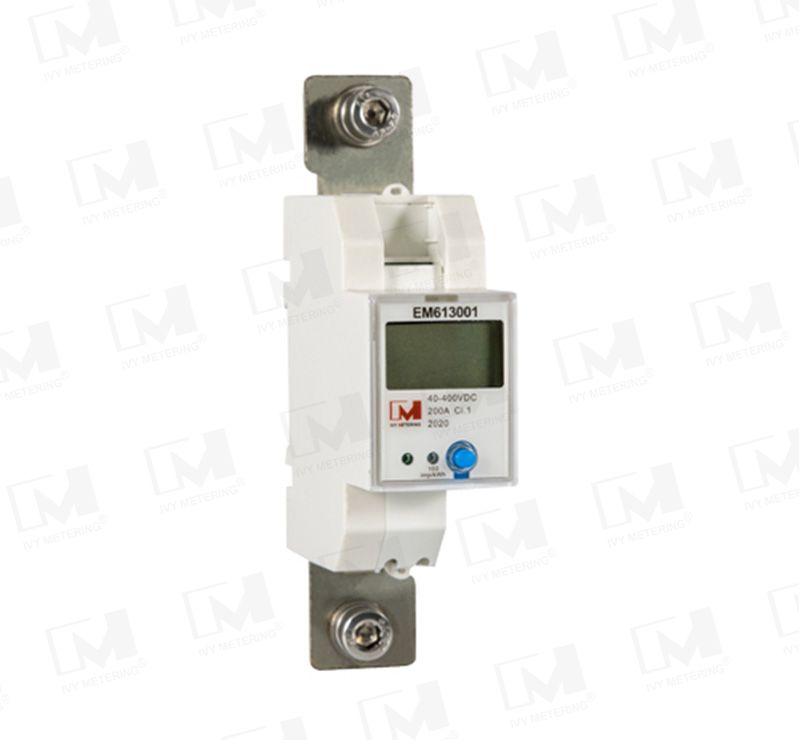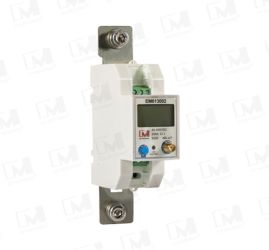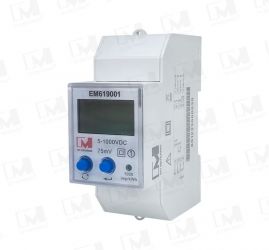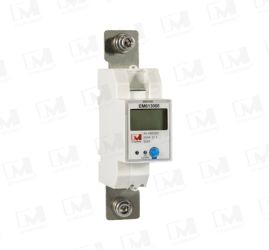EM613001 200A 40-400V Din Rail Smart Shunt RS485 DC Power Monitoring EV Charger Smart Meter
The EM613001 din rail type DC energy meter is mainly designed for Telecom base stations, DC charging station, and solar PV applications. This series of meters can measure voltage, current, power, and forward and reverse electric energy in DC systems. In the actual use site, the total electric energy can be measured, and the electric energy in a specified time period can be measured. The detection results can be used for local display, and can be connected with industrial control equipment and computers to form a measurement and control system.
Product Details
1.There are 4 models of DC meter:EM613001/EM613002/EM619001/EM613005. It's worth to highlight that RS485 & NB-IOT communication are optional.
2.EM series DC energy meters are designed for measuring and monitoring in DC systems.
3.The din rail DC energy meters can measure of important DC parameters: Voltage, current, power and energy etc. It also support bi-directional measurement. All data in the meter are accessible via RS485 using Modbus RTU/DLT645.
4.The meter working with DC power supply. Input voltage range up to 1000VDC, and current inputs are flexible with DC shunt.
5.The multi-tariff version has a RTC equipped inside, it can provides multi-tariff information and monthly records.
6.EM series dc meter is designed for scenarios such as DC panel, battery storage system, solar PV, EV charger and telecom base stations.
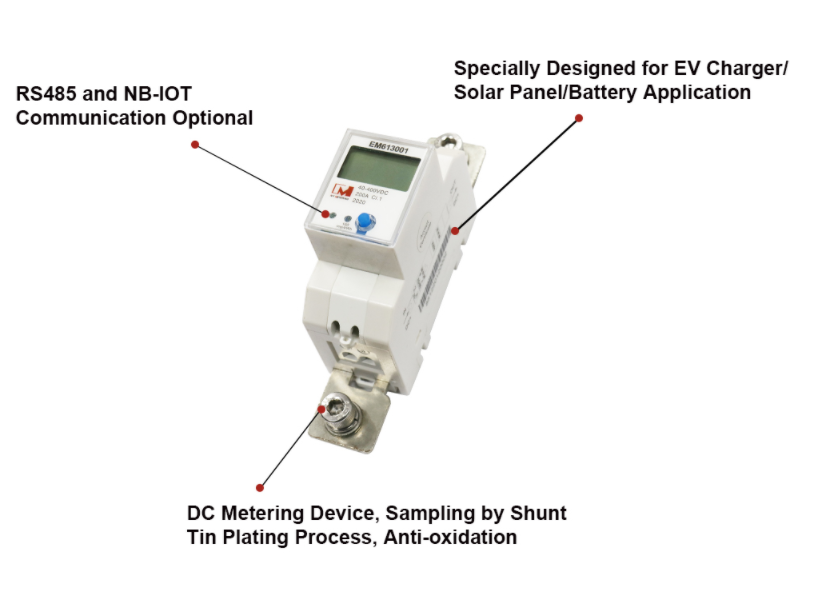
EM Series DC Meter Advantages
Din Rail Mount; Shunt Sampling; Class 1
Measuring Current up to 2000A
Voltage Input DC5~1000V; Current Input 75mV(max)
RS485 Communication with DLT645/Modbus Protocol
Over-current/Over-voltage/Over-load Alarm
Bi-directional Measurement; Net metering for Renewable systems
LCD Backlight; Multi-tariffs(RTC), Monthly Records
Product Parameters
Ref. voltage | DC40V-400V |
Ref. current | 10~240A |
Impulse constant | 100imp/kWh |
LCD display | LCD6+2 |
Operation temp. | -20~+70℃ |
Average humidity | 75% |
Relative humidity | 95% |
Accuracy class | Cl.1 |
Communication | RS485, communication protocol DLT645 |
Power consumption | ≤0.4W,≤8VA |
Standard compliant | GB/T 17708-2017 Static DC Energy Meter |
Accuracy Error of Cl.1 Meter | |
Current value | Limit of percentage error of Cl.1 meter |
0.05Ib≤I<0.1Ib | ±1.5 |
0.1Ib≤I<Imax | ±1.0 |
Product Dimension
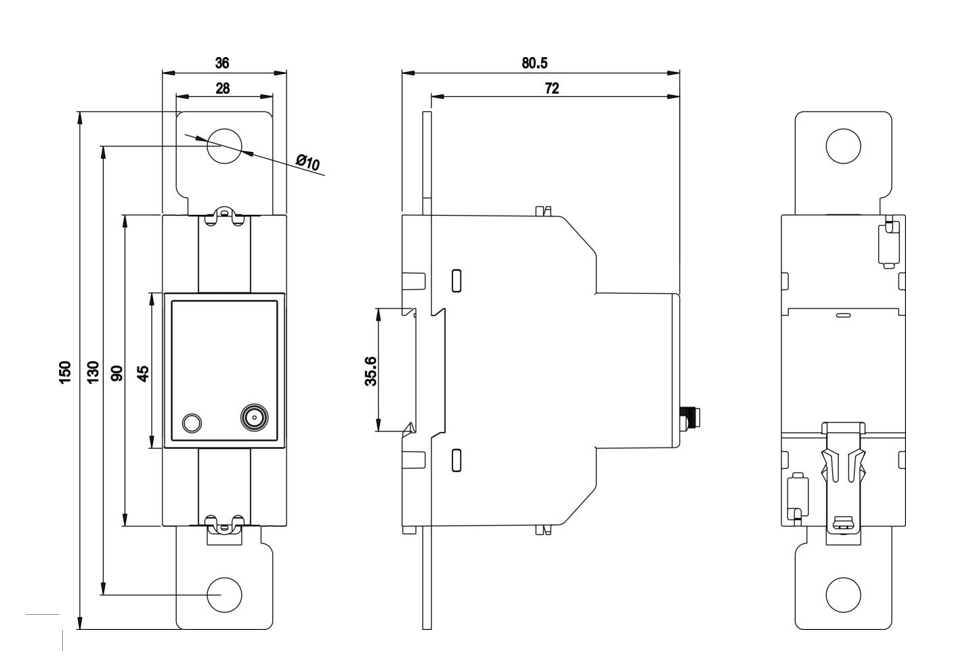
Product Application
Today's public charging infrastructure mostly supplies alternating current (AC). This leads to a long charging time of eight hours on average, due to a low power capability of around 44 kW. To reduce this charging time to only a few minutes, charger manufacturers convert the AC into direct current (DC) outside the car, bypassing the On Board-Charger (OBC) and supplying the battery pack of the electric vehicle directly. Although this method boosts charging power up to 400 kW, this conversion stage generates power losses, which should not be billed to the EV owner. Thus, an electric meter is placed after the conversion stage to monitor and bill the exact energy transferred to the electric vehicle, rather than the charge duration.
The DC energy meter is a key component in the EV ecosystem. It must precisely measure and record the power (voltage and current) delivered from the EVSE to the vehicle, compensating for cable losses, and then securely transmit the data upstream to ensure accurate billing.EM613001 is such a smart and compact DC Billing Meter, fully compliant with the German Eichrecht regulation. Fast chargers for electric vehicles make use of DC charging; they convert the power before it enters the vehicle. It is suitable for power measurement and power metering of DC signal equipment such as EV charging piles. No matter it’s DC fast charging station or DC EV charger, if you want to know the electrical parameters then DC energy power meter is necessary.
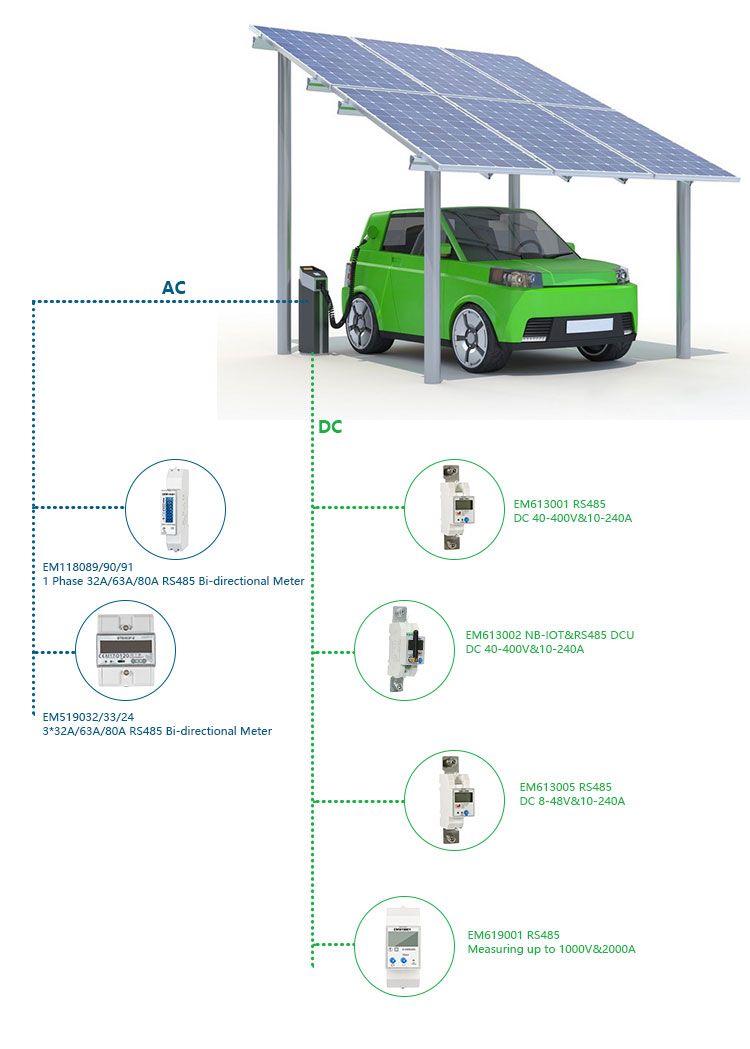
-
EM613001 200A 40-400V Din Rail Smart Shunt RS485 DC Power Monitoring EV Charger Smart Meter
-
EM613002 Shunt Sampling 100A RS485 DC Energy Monitor DC Electricity Meter for Smart EV Fast Charge Billing
-
EM619001 200A 1000VDC Bidirectional Measurement EV Charger DC Energy Meter with RS485 Modbus
-
EM613005 10-240A din rail digital shunt dc electric power energy meter for EV charging pile station


